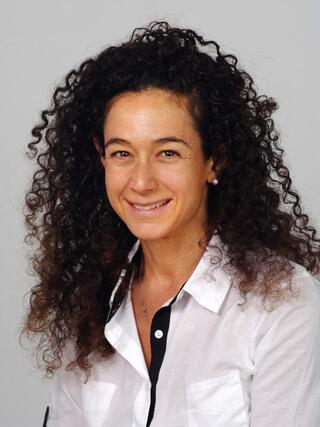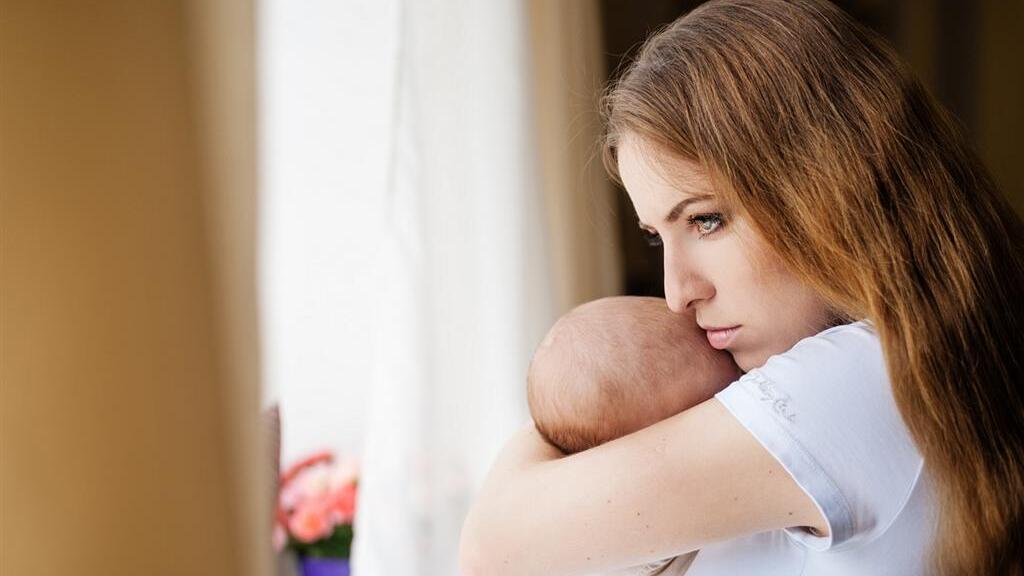Getting your Trinity Audio player ready...
Worldwide experts, as well as those in Israel, are now more optimistic following the approval granted by the U.S. Food and Drug Administration (FDA) last Friday to distribute a pill for women experiencing postpartum depression for the first time. "This is very good news. The research shows positive and rapid results. For a woman suffering from postpartum depression with a small baby, this is critical," said Dr. Vered Bar, director of the Women's Mental Health Center at Sheba Medical Center, in an interview with Ynet.
More stories:
Clinical trials have demonstrated that the Zurzuvae pill acts swiftly, beginning to alleviate depression within only three days, significantly faster than other antidepressants. The treatment involves taking one pill daily for 14 days, and the FDA requires that the label for Zurzuvae include warnings regarding possible suicidal thoughts, behavior and confusion.
According to data from the Health Ministry, 13% of new mothers suffer from postpartum depression.
"Today, there is an understanding that this phenomenon needs a dedicated approach," says Bar. "Unfortunately, it's the most common complication of pregnancy and childbirth - we're talking about one in every five to six women. And it's clear that when a woman is depressed, especially after childbirth, it affects the entire family."
"We know that the rate of depression among fathers in the year after childbirth is also very high compared to other times. We're talking about around 10%, highly correlated with postpartum depression in mothers. Depression is indescribable suffering, and there's an economic cost that society pays for the lack of timely treatment, and the costs are very high. So, it's clear that if we can identify early and treat early, and shorten the duration of suffering, we'll help the woman, the baby, the family and society as a whole. It's a clear benefit," she said.
Someone who experienced postpartum depression twice after giving birth and also wrote a book about it - "Haduba Hagdola" (the big bear)- is Nurit Tal Tenne, a married 48-year-old mother of three and an art curator. "I gave birth to my first child 14 years ago, and at that time, there was less discussion about the phenomenon. I was completely shocked and couldn't understand why they weren't talking about the issue. After I recovered, I created the exhibition 'Insubstantial, Postpartum Depression'."
"After the exhibition and childbirth, I thought I had become stronger and decided to have another child. After the second childbirth, I experienced postpartum depression again. I decided to have a third child and implement all sorts of methods and aspects on myself so that I wouldn't experience postpartum depression for the third time. I prepared myself both physically and mentally and also financially. Postpartum depression needs to be normalized, treated in time, and not allowed to reach crises and extreme situations. There are women who commit suicide if they don't receive treatment."
Tal Tenne also wants to address the social and feminist aspects of postpartum depression. "This issue is actually natural – a woman loses her identity, and undergoes a transformation in her body and soul. It takes time to process our experience, and if society doesn't provide proper tools and support, it often spirals into postpartum depression. We need to extend maternity leave for women, subsidize public social activities for women after childbirth, and ensure a supportive system."
"When you undergo surgery, you have time to physically recover, right? So, for a new mother, she doesn't have that time. She has to move forward with her injured body, come out with a new soul, and say, 'I'm happy.' Yes, certainly happy. How is she going to say, 'Oh, I'm full of anxiety and fear?' She doesn't have room for those emotions. They tell her, 'Millions of women have given birth - what's your problem?' That becomes a powerful snowball."
"In the past, there was a postpartum period, there was support. In the past few decades, women find themselves diminished under societal standards. They see other women leaving the delivery room and immediately squeezing into skinny jeans. Jeans? I can barely function, let alone remember what my name is."
When will the medication arrive in Israel?
"I know that there are several pharmaceutical companies interested, and I trust that they will bring the medication as soon as possible," according to Bar.
 Dr. Vered Bar
Dr. Vered BarNurit, would you have taken the new treatment today?
"That's a question that's hard for me to answer. With all due respect to the wonderful medication, there are societal aspects here that until we change and become aware of, and until we speak about the topic openly and remove the shame, then it's like putting a Band-Aid on the issue. For example, I didn't have family support. I found myself alone, and I didn't know what to do with this lump, that I didn't feel too attached to emotionally either. There are a lot of expectations on women, like automatic love, and when you don't love him or can't breastfeed right away, they say something is wrong with you."
Bar adds, "In conventional drug treatment today, it takes four to six weeks to see results. Not all women are against it, if they're offered a pill that can provide quicker results, I think they would agree. Not every woman needs drug treatment, but those who do - I believe they will consider it positively."
"I agree with Nurit that medication alone is not enough, many additional things are needed. However, there's definitely a biological component to postpartum depression, and I think the medication could help many women and alleviate their suffering, help them heal faster. It's not 'either-or,' it's 'both and both'."




